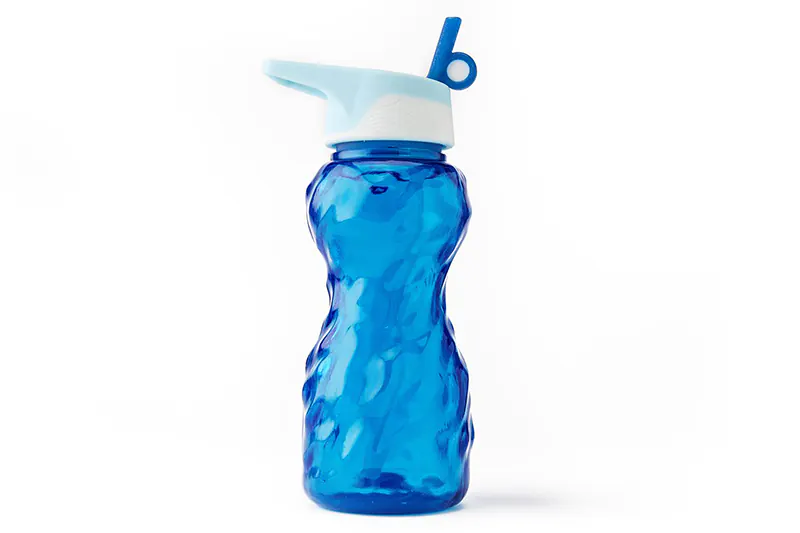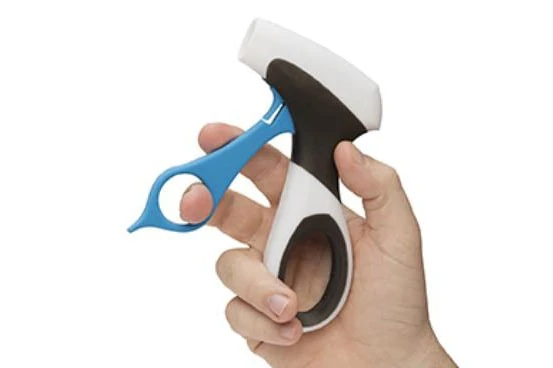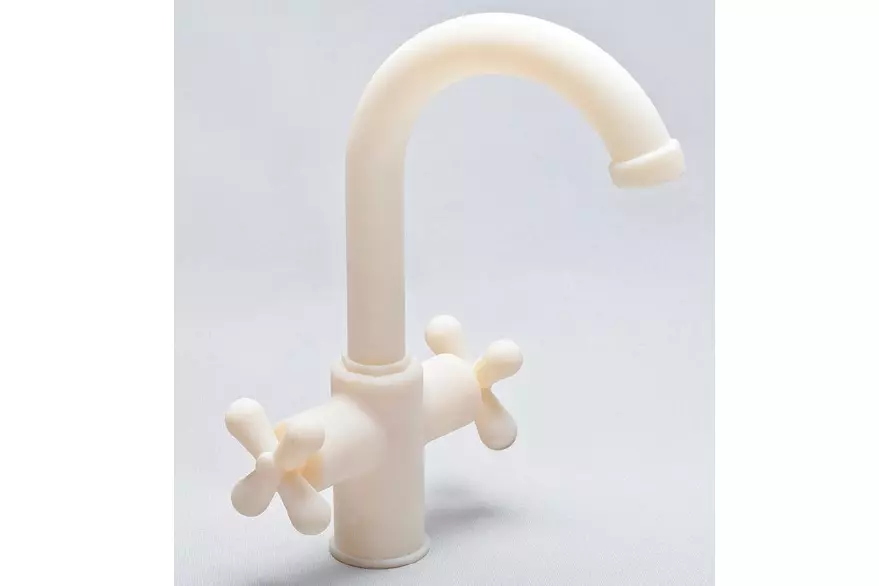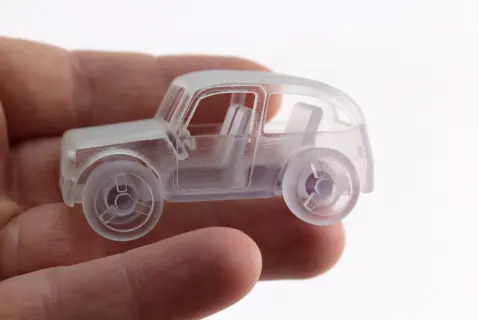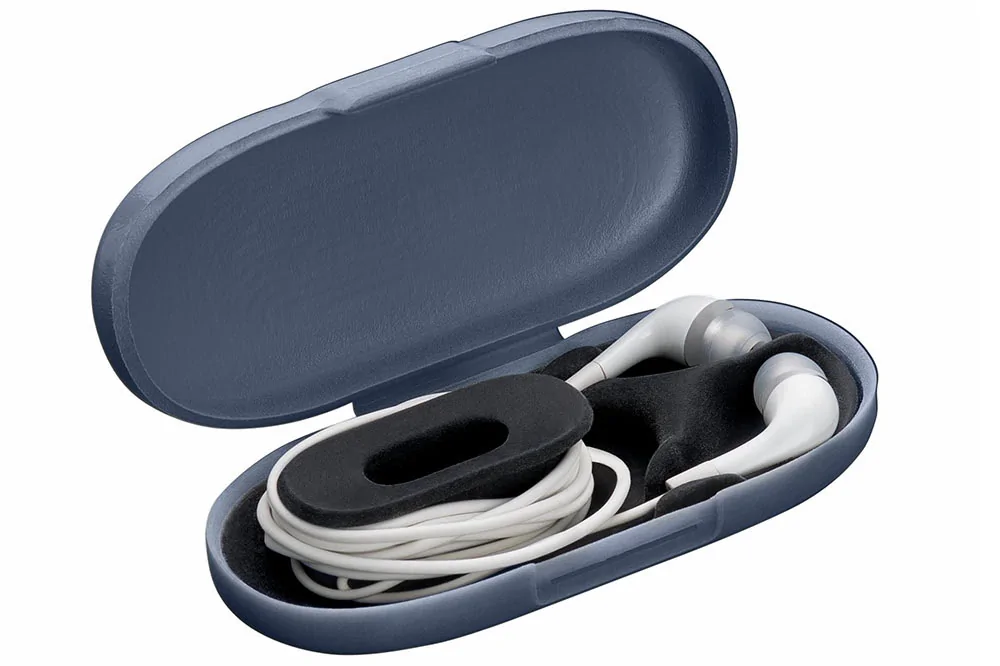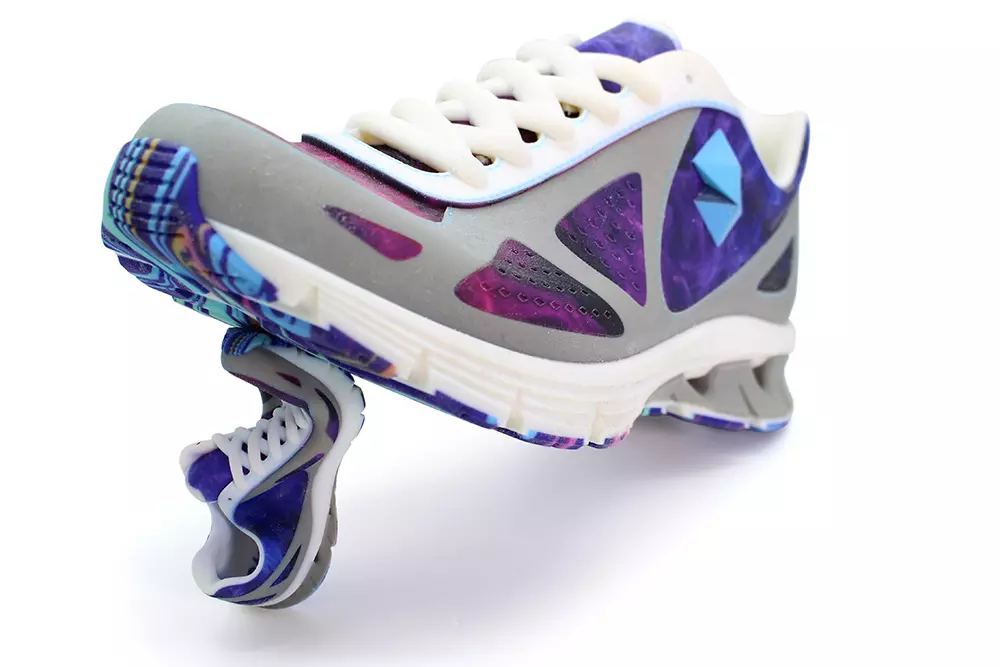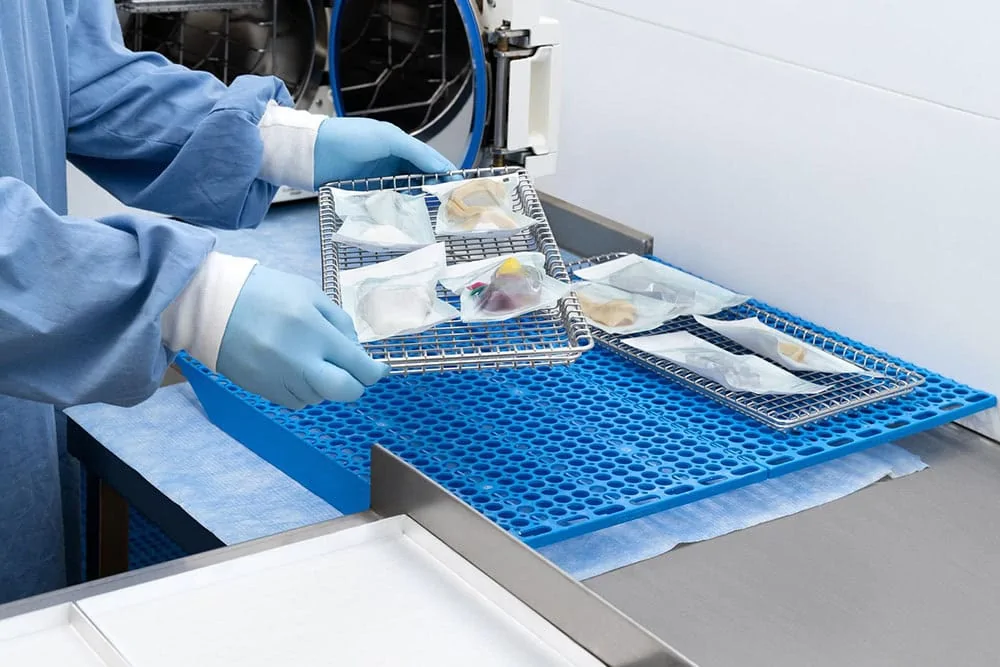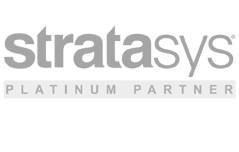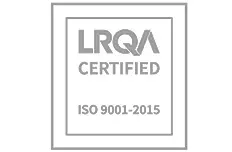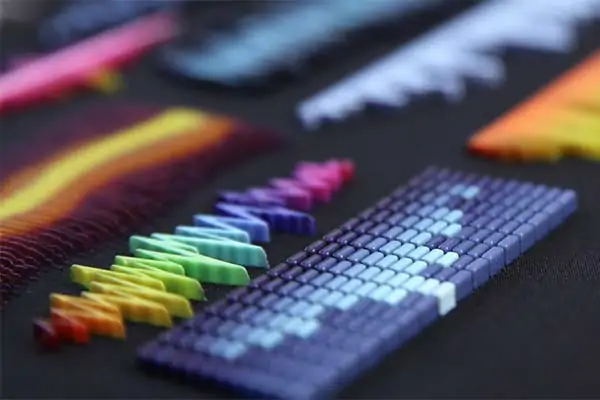
How to choose the right Polyjet material for any job
Stratasys Polyjet materials offer unrivalled versatility when producing realistic prototypes. They can be printed into just about any geometry and, depending on the material chosen, can be elastomeric, rigid, transparent or opaque. Some have special properties such as heat and impact resistance.
They are cost effective, adaptable, and available in a huge range of colours, so innovators can create realistic prototypes of any design on site much faster than when using traditional prototyping methods. The speed that Polyjet 3D printers offer allow for incredibly fast design iterations, reducing your corresponding costs and time to market.
How does Polyjet additive manufacturing work?
Polyjet material is a photopolymer, supplied as a liquid. Once loaded into a compatible printer it is precisely jetted on to the print bed and UV cured to take on its final property.
Polyjet 3D printers are available in both single and multi-material configurations, with the latter accommodating up to seven resins simultaneously. By swapping between them as required, they enable unattended production of prototypes.
Which Polyjet material is right for my job?
Digital Materials
With Shore A values ranging from 27 to 95, digital materials are versatile and adaptable. They have a wide range of applications, whether in the production of a rigid part, or a finish that is as pliable as the gel in a padded bicycle saddle. VeroVivid is available in three colours – cyan, magenta and yellow – which, when used with printers such as the Stratasys J850, can simulate up to 500,000 discrete tones. With printers that are Pantone validated, you can be sure that the colour you see on your prototype will be the same as the ones on the final production part.
This gives designers the freedom to innovate, and reduces the time required to complete a job by making painting redundant.
Digital ABS Plus
When strength and durability are the most important aspects of a job, Digital ABS Plus delivers. This opaque material is designed for use in the most demanding applications, where durability, safety, and a long service life are called for. It can withstand temperatures of up to 68°C and, as well as offering high degrees of rigidity and impressive levels of impact resistance, can be used in the production of snap-fit features and parts without compromising their durability. Digital ABS2 Plus goes further, allowing designers to produce parts with thinner walls and supports without compromising dimensional stability.
Digital ABS Plus is compatible with a wide range of printers, including the Stratasys J35 Pro, J55 Prime and J826 Prime.
High Temperature
High Temperature polymer with thermal post curing can withstand temperatures up to 80°C. This makes it ideal for use in the production of high-performance parts such as pipes and vents for hot liquid and air respectively, or when developing components that will ultimately be used in the most demanding environments. By combining High Temperature polymer with rubberlike materials, designers have the freedom to innovate with a wide variety of Shore A values, using a range of colours and finishes.
High Temperature material is compatible with Objet30 Prime and Objet30 Pro printers.
Transparent
When you need to see through or into a part, Stratasys’ transparent materials are the answer. They reveal inner workings, help clients and designers to understand how a part works, and reveal the flow of air, liquid and other substances as they pass through prototypes. By combining transparent materials with colour polymers in a multi-material printer, designers have complete control over the opacity and tint of the finished product.
Transparent materials are divided into several discrete families, encompassing VeroClear, VeroUltraClear, RGD720 and VeroUltraClearS. They are compatible with, among others, the Stratasys J4100, J35 Pro and J55 Prime.
Simulated Polypropylene
Polypropylene is the second most widely used plastic worldwide, so the ability to simulate it accurately during the development process is key to producing accurate test units while iterating on new parts. Stratasys’ Rigur material (RGD450) has been formulated specifically with this purpose in mind, making it suitable for developing snap-fit assemblies and clasps, medical equipment and components for use in vehicles.
Similarly, Durus, which allows engineers to simulate polypropylene parts at every stage of the design process, is well suited to the development of parts with small cavities and sharp edges, while withstanding frequent compression and stretching, without compromising integrity. Rigur and Durus are compatible with Objet30 Prime and Objet30 Pro printers.
VeroFlex is a specialist material intended for use in the development of eyewear. Able to withstand rigorous testing, it simulates both rigidity and flexibility, giving designers the freedom to use it in the design of frames that will be frequently touched and moved.
Rubberlike
Stratasys’ Elastico, Tango and Agilus30 materials combine strength and flexibility in the production of durable parts that must withstand frequent manipulation, and be able to return to their original shape once released. Tear resistant, and capable of being bent, compressed and flexed many times over, without degrading, Elastico is ideal for use in the development of parts that, once ready for market, will be produced using rubber.
Agilus30, which is available in black, white and clear, is tuned for the prototyping of seals, gaskets, rubber overmoulds and soft grip features. Tango can be used to iterate designs of shock absorbing, non-slip and flexible parts.
Biocompatible
Stratasys’ biocompatible materials, including VeroContactClear are used in the development of dental and medical models and devices. As such, they can be used to produce devices that remain in contact with unbroken skin for more than 30 days, and up to 24 hours with mucosal membrane.
This allows for the on-site production of guides for medical procedures, orthodontic devices tailored precisely to each patient’s bite, and hearing aid casings that fit a customer’s unique ear canal. Biocompatible materials can be used with a wide range of Stratasys printers, including Objet 30 Prime, J35 Pro and J850 Prime.
UK service and support
As a Stratasys Platinum Partner with more than 30 years of experience supplying and supporting 3D printers, parts and consumables, Laser Lines can supply the full range of Stratasys Polyjet materials. With experts on hand to guide you through the process of choosing and employing the most appropriate material for any job, we also have an on-site bureau, allowing you to test any design before committing to producing it yourself.
Call Laser Lines today on 01295 672599 or email [email protected] if you have any questions about how Stratasys Polyjet materials can help speed up your product design and development.

